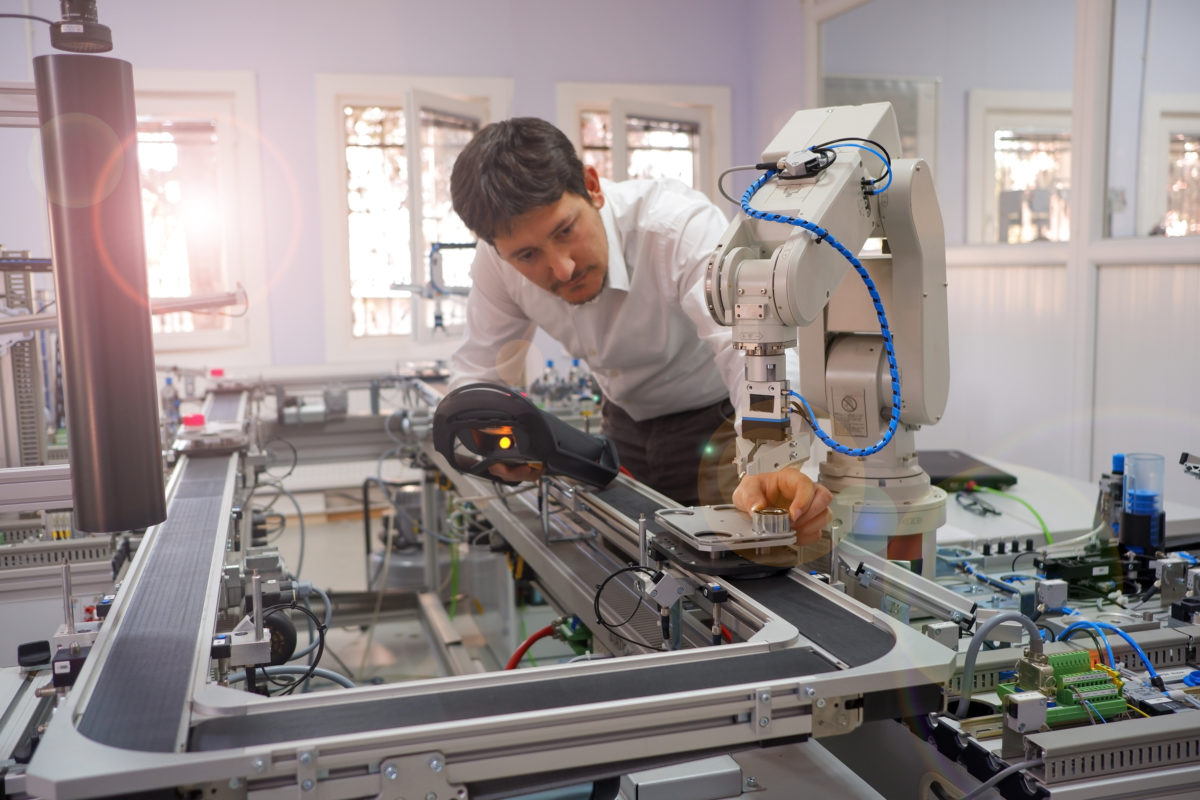The Bottom Line Preparing Students to Work in an Artificial Intelligence World
Crossposted at Mind MattersTechnology innovations are rapidly changing the nature of work. Advancements in artificial intelligence (AI) are especially transforming the workforce landscape at an accelerating rate. Jobs of tomorrow will not resemble those of decades past, nor even those of today.
Futurist Thomas Frey estimates that approximately 50% of today’s jobs will cease to exist by 2030. Specifically, AI will replace jobs that algorithm-based machines can perform. In other words, jobs whose functions can be automated by computer programming will become extinct. This is already well underway, for example, as parking garage attendants have largely been phased out by machines capable of collecting payment and opening the gate for customers to exit during off-peak hours — resulting in financial savings for parking garage owners.
Similarly, assembly line workers performing repetitive and sometimes dangerous tasks have increasingly been replaced by advanced programmable robots, who can complete the tasks more rapidly, accurately (removing the element of human error), and at a lower cost thanks to AI.
However, despite the popular notion, robots will not eliminate all jobs because skills that aren’t programmable, which require human ingenuity, won’t be replaced by machines.
While the loss of a significant percentage of current job functions may sound tragic, Jay Richards explains in The Human Advantage: The Future of American Work in an Age of Smart Machines that technological revolutions have always resulted in more jobs, not fewer. Jobs that can only be accomplished by human workers, including new types of jobs in the future, many of which have not yet been envisioned, will offset job losses.
And for those prepared, the advancements enable the pursuit of increasingly meaningful work that emphasizes the uniquely human capacity for creativity and innovation.
Free enterprise enables the flourishing of new tech-related jobs. As just one example, Intel’s new 20 billion dollar chip-making plant in Ohio will create ten thousand construction and long-term positions. The demand for skilled computer technicians will remain high as our world, and everyday lives become even more immersed in technology.
Furthermore, as John Tamny discusses in The End of Work: Why Your Passion Can Become Your Job, technology will make life easier and more interesting as physical and less cognitive-rich jobs replace those requiring creative thought.
New roles, such as social media influencers and bloggers, are coming on the scene with the development of the internet and associated digital capabilities — career professions that can be rewarding and even lucrative, despite some looking down on these non-traditional vocations.
Additionally, consider that sixty years ago there were three television channels: ABC, NBC, and CBS. Today there are hundreds of streaming channels and thousands of programs available as new technologies have given birth to countless new media-related jobs.
All these developments make it virtually certain that, as usual, the AI doomsayers are wrong. Though there will certainly be disruptions, automation will not displace humanity from meaningful work.
However, the transformation of work has profound implications for the future of education. Duke University professor Cathy N. Davidson predicts that 65% of students who began elementary as of 2015 will fulfill a job not yet created. Therefore, it is imperative that we overhaul the outdated United States’ K-12 education system, which pushes students through 13 years of seat time regardless of demonstrated mastery of core competencies.
Our current one-size-fits-all K-12 factory model education system — built for the industrial era — is ineffective today. It will be even more obsolete in the future. It is certainly not a system that can consistently prepare creative, capable thinkers equipped to contribute to tomorrow’s AI-rich world.
Not only is our current K-12 education system underperforming and increasingly inadequate, but it is under siege as critical thinking and academic knowledge are exchanged for an all-consuming obsession with race, diversity, “equity,” inclusion, and radical gender ideologies. In the name of the redefined equity (attempting to force a uniform outcome), learning standards are lowered to the detriment of all students and, ultimately, our country.
As Richards explains, the student prepared for tomorrow’s technology-rich environment is “logical, literate, and numerate, since these underlie every other intellectual skill.” More, not less, higher-order thinking development and intellectual preparation are required for the jobs of tomorrow.
Not far around the corner is a world in which today’s entry-level lower-skilled jobs have largely dissolved, leaving the unprepared unemployed and without an entry point into the job market. The implications for our country and society are enormous.
America would be wise to ensure all students are prepared for the future — a future in which human critical thinking and creativity are paramount. Now is the time to advance — not weaken — the promise of education for our children.
[Editor’s Note: Jay W. Richards is a Senior Fellow at Discovery Institute.]


